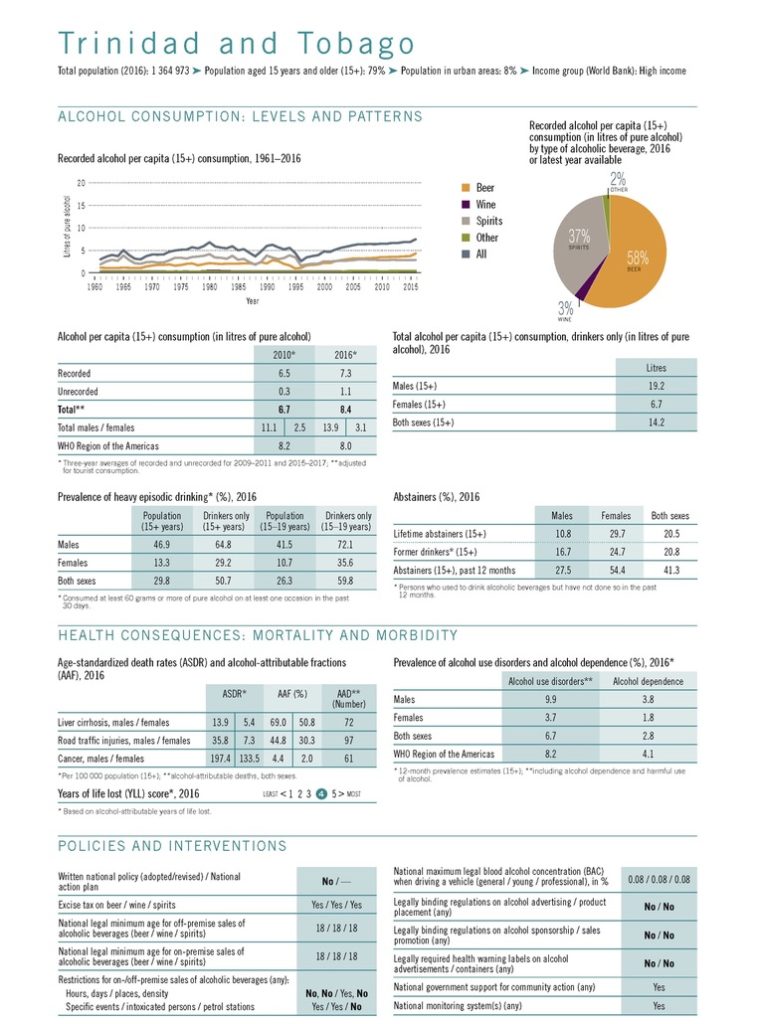Coordinator of the NADAPP Lyra Thompson-Hollingsworth reported that there is an increase of heavy alcohol use in the island nation during the pandemic which is hidden from view. She made the comment at a virtual media briefing of the Ministry of Health on February 13, 2021.
We are hearing from our stakeholders from the treatment facilities that they have received increased calls from persons who have [started using alcohol heavily at home] in terms of dealing with the effects of the pandemic and the isolation,” said Lyra Thompson-Hollingsworth, Coordinator of NADAPP, as per Loop.
Those are some of the anecdotal reports that we may have. In terms of collecting the empirical evidence, that is a process we are currently engaged in with all of our stakeholders.”
Lyra Thompson-Hollingsworth, Coordinator of NADAPP
As Movendi International reported previously, Trinidad and Tobago decided to continue their on-premise alcohol sales ban while other lockdown measures were eased in November, 2020.
Alcohol harm and policy in Trinidad and Tobago
Despite rising alcohol harm in the country, Trinidad and Tobago does not have a comprehensive alcohol policy model. As the World Health Organization (WHO) reports, men who use alcohol consume 19.2 liters per capita, which is very high. 9.9% of the men in the country suffer from alcohol use disorders. Over half (59.8%) of the youth between 15 to 19 years who use alcohol binge on the substance. The country is placed on the high end of years of life lost due to alcohol.
The above data show that the pandemic only increased the existing alcohol issues in the dual-island nation. The solution for the growing alcohol issues is to implement evidence-based alcohol policy solutions in the country. The WHO recommends the three Best Buy policies of reducing alcohol availability, increasing taxes abd prices of alcohol and regulating alcohol marketing, especially through bans of advertising, sponsorship and promotions, as the most cost-effective policy solutions to alcohol problems. Additionally, the WHO SAFER package provides governments with technical resources to implement the alcohol policy blueprint.
Making alcohol policy the priority it should be is an important strategy for the government of Trinidad and Tobago to prevent and reduce alcohol harm, protect citizens and build back better after the pandemic.

